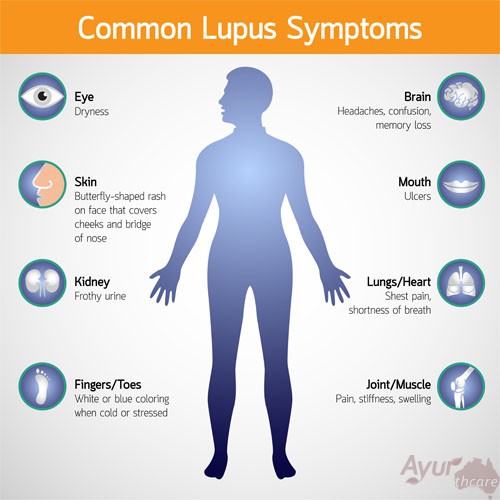By AANP, Edited by Jeanne Galloway, ND
Ahh, spring. The world is ablaze with flowers and burgeoning greenery. You open your window to hear birds singing from every branch. Warm breezes caress your face, and you breathe in deeply to enjoy the scent of fragrant blossoms and…POLLEN.
But with that breath, your celebration of the senses becomes a nightmare. Your eyes and nose are streaming, your body is convulsing with sneezes, and where is that tissue box?
It’s a yearly ordeal for many people, and many others struggle with these symptoms year-round due to molds, dust, and pet dander. Pharmaceutical commercials offer a promise of living clear, but is a life of pills and side effects the only solution?
Far from it, say naturopathic physicians! Allergic symptoms are your immune system’s extreme reaction to substances that are normally found, harmlessly, in your everyday environment. Very often, simple changes of diet, nutritional supplements, and homeopathic remedies can relieve this extreme reaction and the resulting inflammation that triggers most allergy symptoms.
While a comprehensive list of options would demand a small book, here are some of the solutions that naturopathic doctors recommend.
Change Your Diet, Ease Your Symptoms
We’ve all heard about the cardiovascular impacts of a diet high in meat and dairy products, but did you know that recent studies indicate that the Omega-6 fatty acids and oleic acid found in these foods can also worsen allergy symptoms?
Red meat contains a substance called arachadonic acid, which helps to produce the cytokines and leukotrines that cause your immune system to react with allergic inflammation. While you need a small amount of arachadonic acid for your immune system to function, your body can produce this amount naturally. Simply eliminating red meat from your diet can reduce the level of this acid, thus lessening your allergic reactions.
On the other hand, a diet rich in Omega-3 fatty acids can help to protect you from allergic reactions. For additional protection, try adding foods rich in vitamin E. While these solutions may be particularly helpful to women and ex-smokers, this diet can help to support your health generally, no matter your sex, age, or habits.
What can you add to your diet to relieve your allergies? Here are some foods with anti-allergic properties:
Whole grains, dark leafy vegetables, and egg yolks are high in vitamin E.
Cold-pressed flax oil or Evening Primrose oil also contain high levels of vitamin E. Drizzle 1 tbsp. on your salad every day.
Oily fish such as cod, herring, mackerel, salmon, menhaden and sardines provide the Omega-3 fatty acid called eicosapentaenoic acid or EPA.
Spirulina (an alga often used in “green drinks”) also contains eicosapentaenoic acid.
Pineapple contains the anti-inflammatory enzyme bromelain.
Papaya contains the anti-inflammatory enzyme papain.
Turmeric (a rich spice often used in Indian and Far Eastern dishes) contains the anti-inflammatory bioflavonoid quercetin.
For Best Results – Supplement!
A healthy organic diet low in Omega-6 fatty acids and high in vitamin E, Omega-3 fatty acids, and natural anti-inflammatory foods can help to reduce your allergy symptoms. However, your best bet is to supplement your diet with concentrated doses of anti-allergic nutrients such as those listed below:
- Vitamin C (up to 10 grams/day) is a natural anti-histamine;
- Vitamin B5 (up to 800 mg/day);
- Zinc picolinate (up to 150 mg/day); and
- Cod Liver Oil or other cold-water fish oil (look at the label and use a high quality fish oil product containing from 1000 - 2000 mg of the essential fatty acids EPA + DHA per day).
Herbs, Homeopathics, Bodyworking, and More
Your options don’t end in the grocery store and vitamin shop! Naturopathy and other natural modalities offer a broad range of solutions to seasonal or year-round allergies.
Homeopathic remedies involve taking an extremely diluted form of selected allergens in liquid or sugar-pill form sublingually (under the tongue). These miniscule doses serve somewhat like a vaccination, stimulating your immune system to an effective rather than extreme response.
Herbal remedies can be found in the form of teas, tinctures (drops), or capsules, and may follow Western or Chinese herbal traditions. A naturopathic doctor or acupuncturist can guide you in these choices.
Depending on your needs and preferences, you may also want to consider additional solutions:
- Liver detoxification – this process usually involves diet, supplements, and other natural treatments to cleanse the liver from the effects of unhealthy foods, alcohol, and environmental toxins,.Your payoff: a stronger, more balanced immune system.
- Balancing your gut flora. Adding probiotics such as acidophilus or bifidophilus to your supplement protocol can help improve your immune function and can help reduce the “over-reaction” your body produces with allergies.
- Acupuncture can be effective in relieving both the causes and effects of allergic reactions.
- Spinal adjustments such as chiropractic can also help to relieve allergy symptoms.
- Stress management techniques can help to boost your immune system generally, balancing your hormones and leaving your body better able to withstand allergenic onslaughts
Finally, you can cleanse your environment of allergens:
- Remove dust collectors such as rugs, drapes, and upholstered furniture.
- Purchase HEPA air filters for your rooms, or a whole-house filtration system.
- Avoid perfumes and fragranced products, especially those with synthetic ingredients
- Have your home tested for mold and remediate if necessary.
- If you are renovating or choosing a new home, avoid forced-air heating systems; use steam heat instead.











